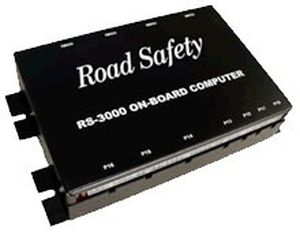The feds want your new car to have a BLACK BOX!
Don’t panic. Chances are your car is already equipped with a black box, officially known as an Event Data Recorder (EDR). According to the National Highway Traffic Safety Administration 91.6 percent of cars already have the little Benedict Arnold device installed somewhere inside them.
What’s scary is that only about twelve states currently have laws regulating how the information they record can be used. Worse still, even though vehicles have had the recorders since the early 1990’s the feds didn’t require automakers to disclose their existence in owner’s manuals until less than four months ago.
What we have here my friends is a privacy concern, and a particularly large one at that.
"Right now we're in an environment where there are no rules, there are no limits, there are no consequences and there is no transparency," said Lillie Coney, associate director of the Electronic Privacy Information Center, a privacy advocacy group. "Most people who are operating a motor vehicle have no idea this technology is integrated into their vehicle."
This month the NHTSA proposed that automakers be required to include black boxes in all new cars and light trucks beginning September 1, 2014. If passed in congress a proposed bill would require the boxes to preserve information from vehicle sensors leading up to the event of the crash. Data kept to be snooped through afterwards would include:
- Change in forward crash speed
- Maximum change in forward crash speed
- Time from beginning of crash at which the maximum change in forward crash speed occurs
- Speed vehicle was traveling
- Percentage of engine throttle, percentage full (how far the accelerator pedal was pressed)
- Whether or not brake was applied
- Ignition cycle (number of power cycles applied to the EDR) at the time of the crash
- Ignition cycle (number of power cycles applied to the EDR) when the EDR data were downloaded
- Whether or not driver was using safety belt
- Whether or not frontal airbag warning lamp was on
- Driver frontal airbag deployment: time to deploy for a single stage airbag, or time to first stage deployment for a multistage airbag
- Right front passenger frontal airbag deployment: time to deploy for a single stage airbag, or time to first stage deployment for a multistage airbag
- Number of crash events
- Time between first two crash events, if applicable
- Whether or not EDR completed recording (2)
Acting as a long arm of the U.S. government’s automotive safety division, the NHTSA, says they want to get their hands on information gathered from the EDRs for drivers’ own good.
"A broader EDR requirement would ensure the agency has the safety-related information it needs to determine what factors may contribute to crashes across all vehicle manufacturers," NHTSA Administrator David Strickland said.
That might sound fine and dandy but the concern remains who else besides the NHTSA could acquire the information in hopes of turning the screw on drivers involved in an accident. Interested parties could likely include policemen, insurance agencies, judges and zealot car bumper advocacy groups.
"There are important safety concerns here and they shouldn't be ignored, but there are also pressing privacy concerns," said Chris Calabrese of the American Civil Liberties Union. "Chiefly, who's going to access this information and how long is it going to be collected? I'd make sure that the owner of the vehicle controls the data." (3)
That brings us to most important part of the bill: It states that the car’s owner owns the data, meaning the majority of people already driving cars equipped with the boxes and those that could be required to in the future would have federal law backing up their privacy rights. The Insurance Institute for Highway Safety likes that idea and voiced their opinion of EDR usage on their website:
“EDRs and the data they store belong to vehicle owners. Police, insurers, researchers, automakers and others may gain access to the data with owner consent. Without consent, access may be obtained through a court order. For example, in a Florida criminal case involving a vehicular manslaughter charge, the police obtained a warrant to access the EDR data.
For crashes that don't involve litigation, especially when police or insurers are interested in assessing fault, insurers may be able to access the EDRs in their policyholders' vehicles based on provisions in the insurance contract requiring policyholders to cooperate with the insurer. However, some states prohibit insurance contracts from requiring policyholders to consent to access.” (2)
Complaining about car black boxes at this point isn’t going to accomplish much; like the Smart Fortwo they already exist amongst us for better or worse. If the pending bill is passed the portion of it that would require black boxes be installed on everyone’s vehicle is largely non-consequential – odds are you’re already driving with Big Brother on board.
What’s important now is for drivers to have as many rights to protect their privacy moving forward as possible. Creepy or not the bill will help with that.
SOURCES:
(1) Mercury News
(2) Jalopnik
(3) ABC News

